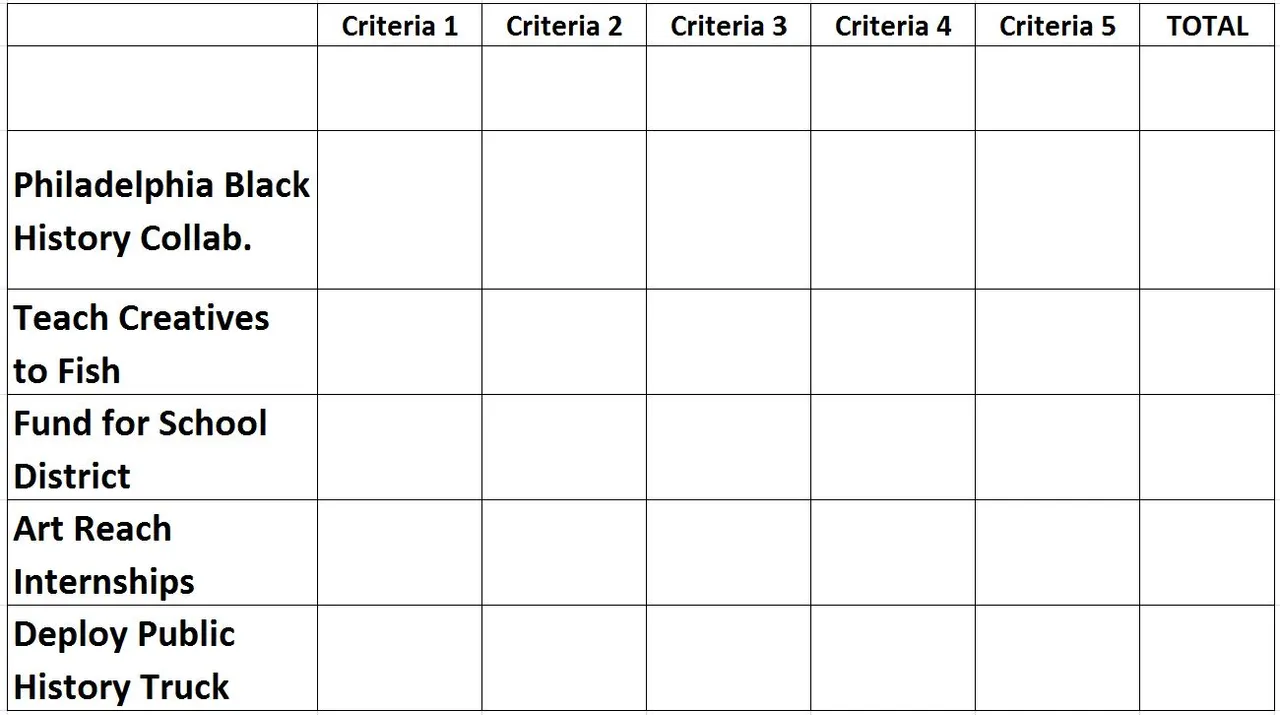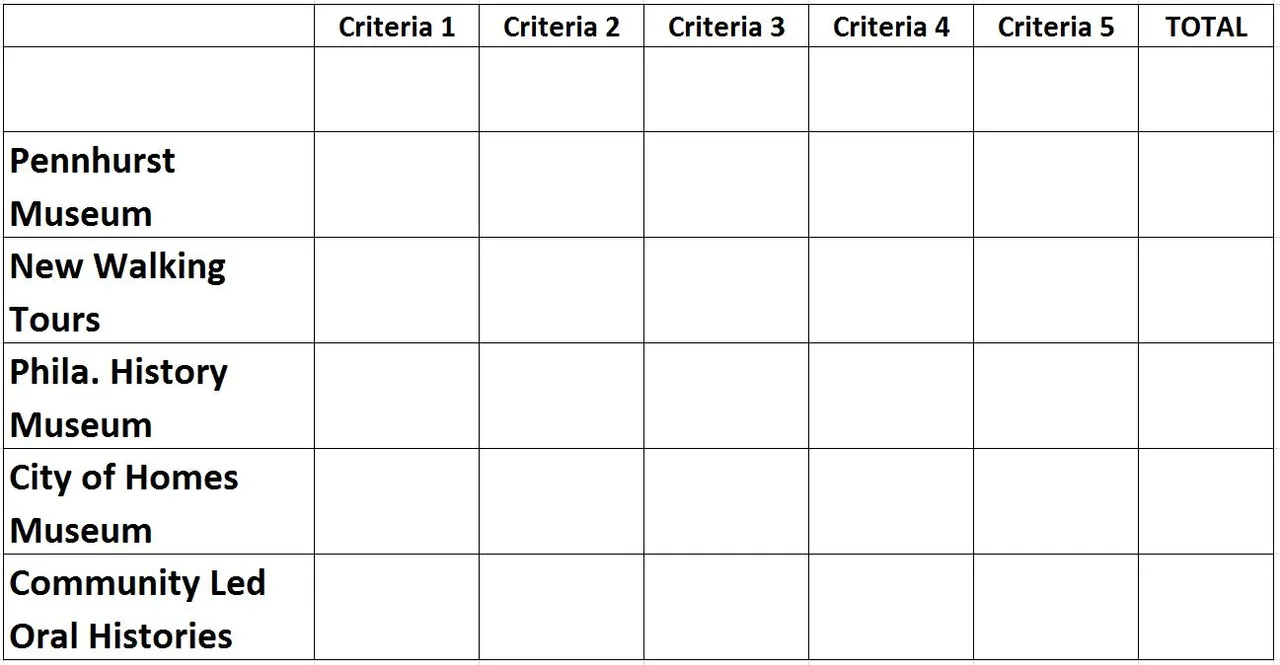It's time to design a decision grid.
We have many ideas, good ones, and they are before us in posts on the PhillyHistory feed, summarized here and here.

Now’s the time to look at them more closely and systematically. Seems easy at first, but we have 15 voices and perspectives, personal insights and professional experience, firmly-help opinions and ambitions in play.
How to sort it all out and come up with the most thoughtful – the best – recommendation? Reading over the comments, we find a lot of concerns. Here are a just few:
- “I'm worried that our money wouldn't be enough to develop a concrete, effective action."
- "The only concern would be how to facilitate this plan?"
- "I am concerned about the longevity of it."
- "I just don't think we have enough funds."
- "We need to ask what sustainability might mean."
- "We need to avoid placing new programming obligations on organizations."
- "Will our donations provide enough funds to help push this program forward, and cover all bases needed?"
- "I'm still worried that this would be very hard without the help of some whales."
Yes, now’s the time to apply some systematic thinking.
What criteria would be appropriate to use to begin our evaluation? What measures could we agree upon? Over the last month or so, we’ve talked about concepts and measures of organizational effectiveness embodied in many words: capacity, ability, experience, viability, sustainability, quality, and readiness, to mention but a few. Now is the time to select five criteria that most clearly enable us to compare apples and apples (or as close to apples as possible) and accomplish what seems to be ever-more elusive: a good funding decision.
That’s what we’re going to be talking about today, using these two forms:


Where will we be when we’ve filled out our grids? Where will we be having graded each project idea and each criteria on a scale of 1 to 5 (assigning 2.5 when we have no information)? We should be able to remove the least likely projects and make focused inquiries about the rest.
Sounds like a plan? But what five criteria should we use?
We need to hear what you think.
100% of the SBD rewards from this #explore1918 post will support the Philadelphia History Initiative @phillyhistory. This crypto-experiment conducted by graduate courses at Temple University's Center for Public History and MLA Program, is exploring history and empowering education. Click here to learn more.
